What is nutritional health?
Nutritional health is a state of well-being that is a result of the ingestion and absorption along with the metabolism and storage of essential nutrient(s) that enable the body to stay lively. All of these nutrients (proteins, lipids, carbs, vitamins and minerals) are essential to the maintenance of body processes, development and repair, and energy production. Eating a diverse diet full of nutrient-rich foods can promote good health and help stave off chronic conditions such as obesity, diabetes and heart disease.

Let’s find out more about them! On the other hand, we call good nutritional health, when we monitor and control their consumption (macronutrients, such as fats, proteins and carbohydrates) and micronutrients (such as vitamins and minerals), clearly avoiding diseases and deficiencies that can have serious consequences for our organism! And whereas macronutrients provide energy, micronutrients are critical for bone health, immune response, and cell repair. An excess or deficiency of certain nutrients leads to health problems. Too much sugar can increase your risk of obesity and diabetes; not enough iron can lead to anaemia.
Big picture: Even though particular nutrient requirements are pivotal, nutritional health consists in water, control of quantity, and timing of meals. Combined, they are advised as a balanced diet and regular exercise, to maintain health and prevent illness. We, therefore, believe it constitutes the building block to sustaining long-term mental, emotional, and physical health through diet.
Why is healthy nutrition important?
Well-being is rooted in the right food—you eat right, you stay healthy, you avert disease. Their bodies require carbohydrates, proteins, lipids, vitamins, and minerals in order to possess the power to perform vital functions such as energy production, muscle repair, an effective immune system, and cognitive power. Nutrition is the process through which the body obtains these nutrients. Eating a balanced diet is critical for growth and development, as well as weight maintenance.
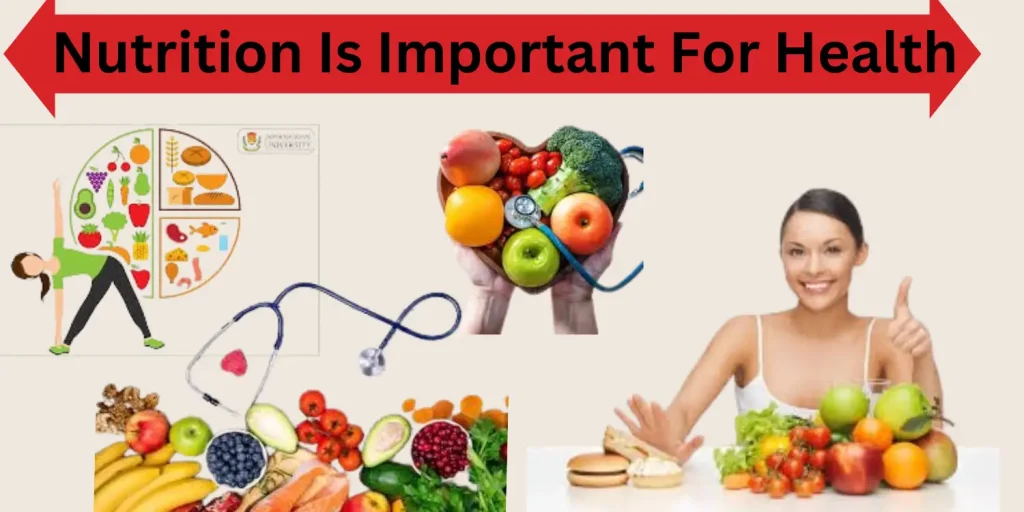
Eating well decreases the risk of developing chronic diseases such as diabetes, heart disease, high blood pressure and certain cancers. Foods associated with health benefits include fruits, vegetables, whole grains, and lean meats, which all can reduce inflammation, promote heart health, and stabilize blood sugar levels. (reducing the risk of many ailments) Eating balanced meals helps keep a healthy weight and prevents obesity, one of the biggest risk factors for many diseases.
Nutrition affects both mental and physical health. Although bad food can cause fatigue, moods and mental health issues such as anxiety and depression, proper nutrition can positively affect mood, energy levels and cognitive performance.
To sum it up, a balanced diet that provides the entire nutrients that the body requires to function, can surely assist several factors of medical diseases. Focusing on good diet, may increase longevity, induce healthiness, prevent disease … you are taught these processes and it has been since October 2023.
What is the role of nutrition in health?
Nutrition is the science concerned with the development and functioning of biological systems, as well as the synthesis of biomolecules. Macronutrients (carbohydrate, protein, fat), micronutrients (vitamins and minerals) are important for a variety of bodily processes. Carbohydrates, proteins, fats and enzymes are important components for the human body to maintain the energy to perform daily tasks, repair and grow muscle. Fats help cells function and absorb fat-soluble vitamins, including A, D, E and K.

The vitamins and minerals also help boost the immune system, maintain bone health, and are essential in the function of enzymes. Proper nutrition also affects the body’s capacity to combat infections, recover from disease, and heal wounds. It also supports brain function, elevates mood and sharpens mental clarity.
Nutrition is also an important part of prevention of diseases. Maintaining a healthy diet is a big part in keeping in control blood pressure, cholesterol level, and blood sugar; thus decreasing the chances of developing chronic illnesses such as cardiovascular diseases, diabetes, and obesity.
Good nutrition also promotes healthy growth and development in children, helps build bone and muscle in adults, and assists with managing age-associated health issues in older adults. Thus nutrition is a key to healthy life from many diseases and healthy body and mind at any point of time.
What is the best definition of nutrition?
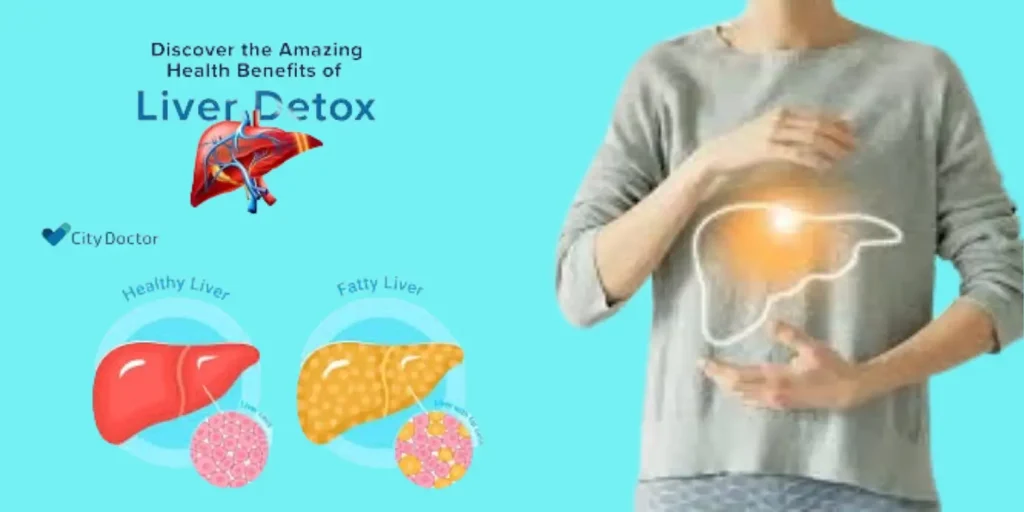
Nutrition is the study of how food and its constituents affect health, growth and the functioning of the body. It refers to the processes by which the body integrates and uses the nutrients contained in food. These include macronutrients, the carbohydrates, proteins, and fats that provide energy; micronutrients, vitamins and minerals that facilitate a variety of bodily functions.
Nutrition is the science of what we eat, how different diets and food choices, and nutritional deficiencies or excesses impact health, performance and disease prevention. Adequate nutrition guarantees that the body receives an appropriate mix of nutrients that can support travel needs, immune system function, tissue repair and cognitive processes, while promoting general healthiness and durability. It also examines the role of diet in chronic diseases such as diabetes, heart disease and obesity.
The word itself means from fight of promotion to the consuming nutrition; select the nutrition that allows the dietary option system of best health to allow to live; It also focuses on eating a balanced, varied diet of whole, nutrient-dense foods and reducing the intake of processed foods rich in sugar, salt or saturated fats. Proper nutrition knowledge can enable individuals to better manage their health to reach a reasonable weight, decrease disease prevalence and enhance life quality.
Which is the best nutrition in the world?
The world best nutrition is subjective depending on a person needs, emotion and culture. But the healthiest diets are underpinned by shared principles that emphasize balance, variety and nutrient density.

The Mediterranean diet is one of the most highly regarded diets, well-known for focusing on fruits and vegetables, whole grains, nuts, healthy fats, and lean proteins. It emphasizes a high consumption of fruits, vegetables, whole grains, legumes, nuts and seeds, with olive oil as the main source of fat. It also includes moderate portions of fish, poultry, and dairy, while curbing red meat and processed foods. So-called Mediterranean diets promote heart health, reduce inflammation and may lead to lower rates of chronic diseases such as diabetes and cancer, many studies show.
Another would be the DASH (Dietary Approaches to Stop Hypertension) diet to reduce high blood pressure. It stresses the importance of fruits, vegetables, whole grains, lean proteins and low-fat dairy while cutting back on sodium consumption and processed foods.
Overall, a common sense approach to nutrition with an emphasis on health is preferable and as with everything individualisation is a must. That said, but in general, shifting towards a sustainable Diet mainly on whole foods, fresh, in-season, minimally processed, with diverse nutrients in addition to low in added sugars (or healthiest sources of sugars)(sugars of fruits or honey) and unhealthy fats is the best approach for supporting health and wellness over the long-term.
What is healthy for your body?
A proper diet, active regular lifestyle, sleep and mental state can keep a body. 1) Nutrition: An important part of the body functions of balanced nutrition. Fruits, vegetables, whole grains, lean proteins, and healthy fats contain the vitamins, minerals, and antioxidants that the body requires for energy, immune function and cellular repair. By limiting processed foods, added sugars and unhealthy fats, it reduces the risk for chronic conditions like heart disease, diabetes and obesity.
Again, regular physical activity is vital. Exercise is good for the heart muscle, good for the skeletal muscle and the bones and circulation, and increase energy. This also contributes to mental health through reduced feelings of stress, anxiety and depression, while simultaneously elevating mood and cognitive function.
The second is sufficient sleep. It enables the body to heal, promotes immunity, and ensures mental clarity and emotional balance. General quality sleep requirement Adult need 7-9 hours of quality sleep every day.
Finally, you also need to continue practising mental well-being through mindfulness, stress management and positive social interactions. Managing stress, drinking enough fluids, smoking cessation, and avoiding alcohol abuse are also essential parts of a healthy lifestyle. All in all, taking a comprehensive approach to nutrition, physical activity, sleep, and psychological well-being is necessary to maintain the body in optimal condition.
What is the function of the nutrition?
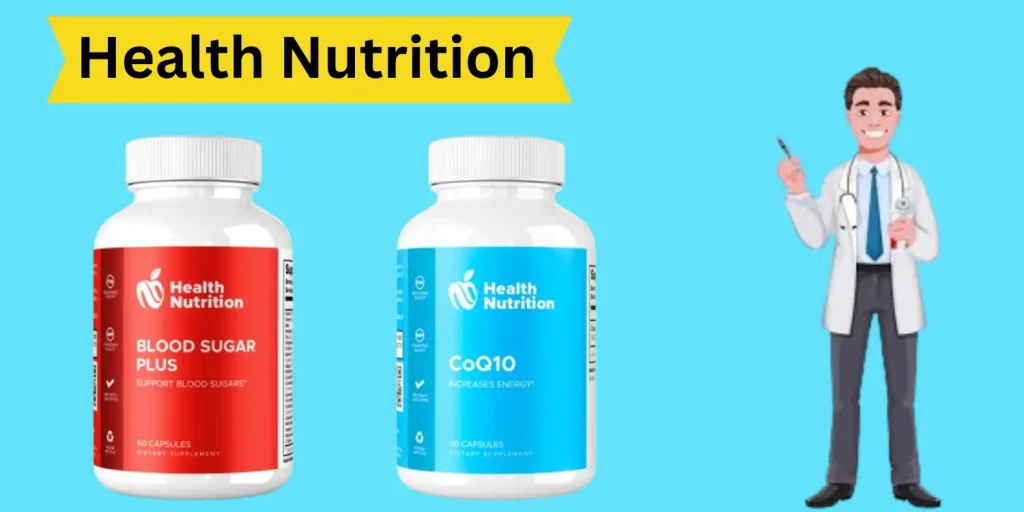
Nutrition serves the purpose of supplying the body with nutrients that serve the demands of growth, development, energy production, and overall health. These nutrients, (carbohydrates, proteins, fats, vitamins and minerals) are required for survival, and each perform different functions in the body.
Carbohydrates are our body’s main source of energy, providing energy for our daily activities and brain. Proteins are needed for the repair and growth of tissues and for the production of enzymes and hormones. Fats are also important in energy storage, organ protection, and in helping to absorb fat-soluble vitamins (A, D, E, and K).
Vitamins and minerals are essential in the regulation of bodily functions. Vitamins function as cofactors in metabolic reactions; support immune function; and promote healthy skin and eyes. Minerals such as calcium, magnesium, and potassium are essential for bone health, muscle function, and maintaining fluid balance.
Nutrition is also important for disease prevention and immune support. A healthy and sufficient nutrient intake improves immune function, decreases inflammation, and supports healing from disease/ injury. As good nutrition protects against chronic diseases, including heart disease and diabetes, obesity, and other clinical conditions.
In the end, nutrition is a way to sustain the body by providing the blocks that repair and maintain the body while allowing it to grow, develop, and thrive throughout life.
What is the definition of a nutrient in health?
A nutrient is a substance that an organism needs to live and grow. Nutrients are the main parts of the foods we eat and are essential to keeping us healthy — as energy and other bodily systems. Nutrients fall into six groups: carbohydrates, proteins, fats, vitamins, minerals and water, and they perform different roles in the body.
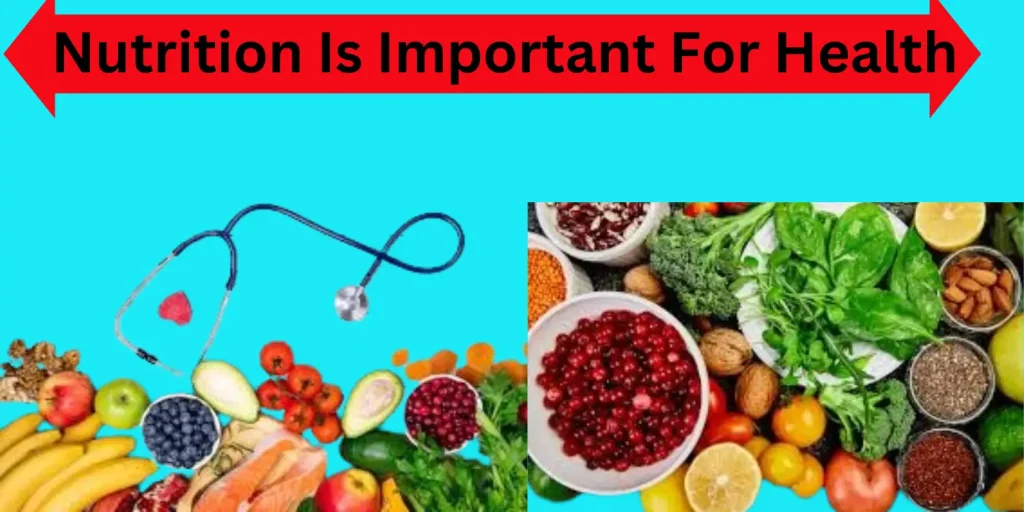
Carbohydrates, proteins and fats are called macronutrients because the body needs them in larger amounts to produce energy and maintain the structure and function of cells. Carbohydrates are energy, especially for the available energy for the brain and muscles, protean is for maintenance and immune and enzyme production. As for fats, these are essential for storing energy, protecting organs, and helping the body absorb fat-soluble vitamins.
These vitamins and minerals fall under the category of micronutrients, meaning we need them in smaller amounts, though they are essential for processes including immune support, bone health and enzyme function. For instance, vitamin D enhances calcium absorption and is important for bone health, and iron is necessary for blood transport of oxygen.
Water is another nutrient about which the average person may have little awareness, but it is also indispensable as it assists in hydration, digestion, temperature control, and waste elimination.
In health, the body should be able to sustain optimal physical and mental functioning while also managing vital compounds from food in adequate amounts to prevent deficiency and avoid chronic disease.
What is basic nutrition?
Basic nutrition is one of the crucial foundations of how the body utilizes food for health, growth, and function. Nutrition deals with learning the basics within these nutrients — carbohydrates, proteins, fats, vitamins, minerals, and water — the information of how they work within the body to provide the vital processes that keep the body zipping along with energy production, repairing tissue, defense against immune agents, and maintenance of the body.
Carbohydrates — the body’s primary fuel source — are in foods such as grains, fruits and vegetables. Proteins, found in foods like meat, dairy, legumes and nuts, are essential for building and repairing tissues. Fats, which are necessary for storing energy, producing hormones and absorbing fat-soluble vitamins, are found in oils, nuts and fatty fish.
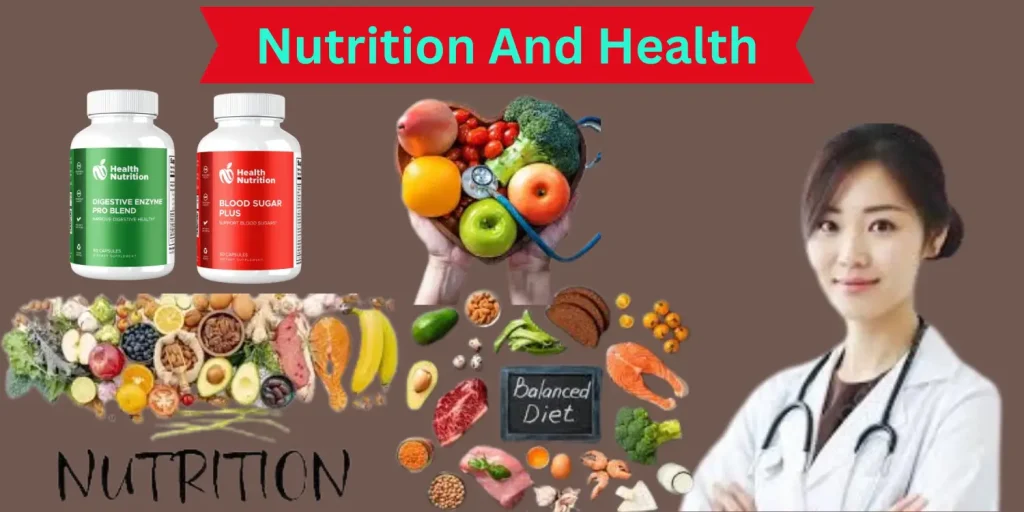
Vitamins and minerals are involved in many physiological functions. And, for example, vitamin C strengthens the immune system, calcium strengthens bones. Minerals ] such as iron are essential to oxygen transport in the blood. Water, as it is not a nutrient in the same category as the others, except that it is still necessary for us to drink to keep on eating and digesting and to sweat or maintain cool for entire human lifecycle.
Basic nutrition also includes knowledge of portion sizes, the need for a variety in the diet, and how to choose healthy food options. This comes from a paradigm of a balanced diet, which consists of nutrients-dense foods, which is essential for health and disease prevention.
What is the definition of good nutritional status?
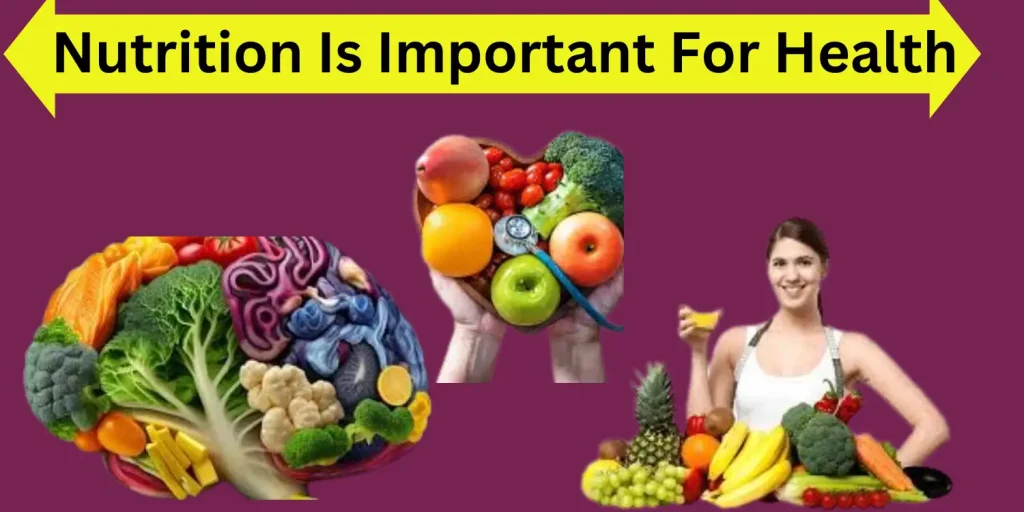
It is employed to describe a condition in which the body receives the correct proportions of essential components such as carbohydrates, protein, fat, vitamins and minerals, which are indispensable to maintaining a healthy body and mind. This means that the body is well-fed and is rightly using these raw materials to perform necessary work such as the providing the ATP for muscles to contract, supporting the immune system, growth, and repairing tissue.
People in good nutritional status tend to have a healthy weight, robust immune function, good muscle and bone health, and mental clarity. They can do this without deficiencies or excesses of energy and nutrients that may bookmark health-related problems. Other indicators of good nutritional status include the presence or absence of malnutrition, which could be either undernutrition (stunting, wasting, or deficiencies) or overnutrition (obesity or excessive intakes of nutrients).
A balanced, varied, nutrient-dense diet consisting of fruits, vegetables, whole grains, lean proteins and healthy fats will help ensure good nutritional status. It also takes good hydration, consistent exercise, and a monkey-butting-out of bad habits like smoking or heavy drinking. Simply put, good nutritional status is the most decided proof of good health, vigor and disease resistance.
Table of Contents